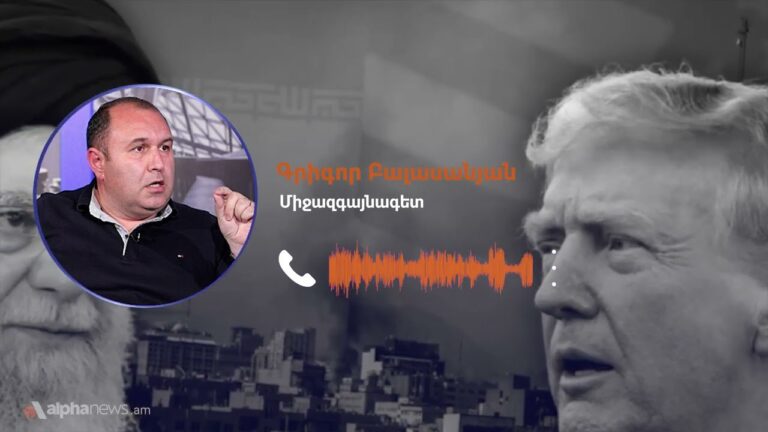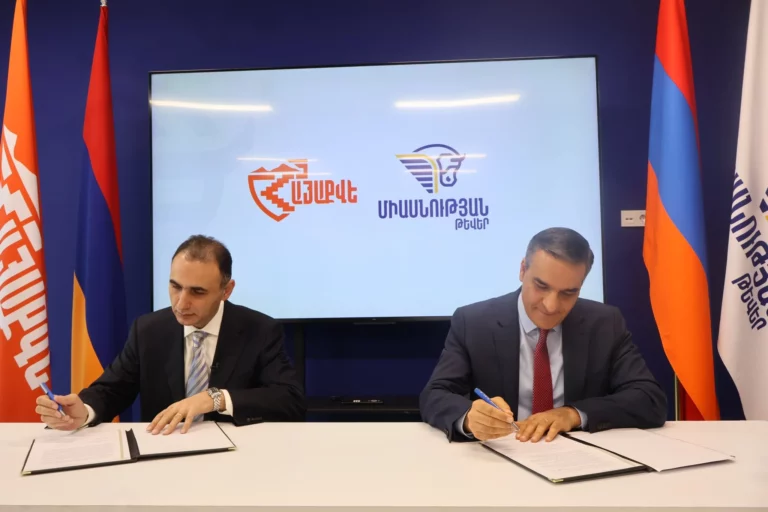Does the United States not want to welcome Turkiye’s role in the opening of the Zangezur Corridor?
December 20 2023, 11:38
If you are closely following the Armenian media, then you could not help but notice several patterns of information policy pursued by the current Armenian authorities:
1. No negative comments about Turkiye in the official and “near official” media”;
2. The fact that Azerbaijan does not start a war against Armenia is Turkiye’s merit, as Ankara deters Baku from aggression against Armenia;
3. The introduction of the idea that the Armenian authorities are against providing any corridor through their territory to third countries, as well as the fact that “the Zangezur corridor is actually beneficial not to Azerbaijan but to Russia.”
We would like to dwell on the last point in more detail, especially in light of the most recent events. Last week, the head of the European Council, Charles Michel, said that although the President of Azerbaijan stated that he did not have any territorial claims against Armenia, there were disagreements on the unblocking of communications.
“There is a debate over the specific ways to connect Nakhichevan to Azerbaijan,” Michel said.
A few days before, Ilham Aliyev said that Azerbaijan should have easy access to Nakhichevan. “Armenia has two options now. First, they must immediately provide a 42-kilometer railway track at their own expense or at the expense of European funds. We actually consider this their sovereign territory, and we have no reservations about their sovereignty. But there should be easy access from Azerbaijan to Nakhichevan,” Aliyev said.
Aliyev added that earlier in Brussels, an option based on the experience of the railway route from Russia to Kaliningrad was discussed. Aliyev actually demands a corridor, but the wording is different, so as not to prevent Nikol Pashinyan from presenting it differently in Armenia and once again mislead the Armenian people.
Turkish Minister of Transport and Infrastructure Abdulkadir Uraloglu said yesterday that the Zangezur Corridor will help create a strong communication link between fraternal Azerbaijan and Turkiye.
He stressed the strategic importance of the Zangezur Corridor. “Through this corridor, direct communication will be provided both with Azerbaijan and with other Turkic republics.”
In other words, we see that Nikol Pashinyan held negotiations in Brussels, where an extraterritorial corridor to Azerbaijan was discussed (without informing the Armenian public or his voters, whom he has been convincing for several years that the “corridor” is a red line for the government), Turkiye considers the opening of this communication the most important project that will ensure the connection of Azerbaijan with Turkiye and other Turkic countries, and the Armenian authorities do not comment on these territorial claims.
In the context of the territorial claims of Turkiye and Azerbaijan, which have been enshrined for several years in the so-called “Shushi Declaration”, confirmed by Minister Uraloglu, it would be interesting to know the opinion of official Washington on this issue. Why are we focusing on Washington’s opinion? The answer is obvious: just a few days ago, the Spokesperson of the State Department, Matthew Miller, said at a briefing that the United States welcomes Turkiye’s role in resolving the conflict between Armenia and Azerbaijan.
Does the United States not want to welcome Turkiye’s role in the opening of the Zangezur Corridor?
Back in August, Miller stated that Turkiye could play a “productive” role in normalizing Armenian-Azerbaijani relations. At the same time, Miller mentioned that he does not want to talk about Russia when it comes to official Yerevan and Baku.
It is already clear to many that if for a significant part of the Armenians of the world, the events of 2020-2023 were about the fate of Armenian Karabakh, then for the “powerful of this world”, for regional powers, the events were related to the communications in Transcaucasia.
The common goal of Turkiye, Azerbaijan, Washington, Brussels and Pashinyan is to ensure that control over communications is carried out not by the Russian Federal Security Service but by the entity that official Ankara wants to see in Armenia, which will also allow Azerbaijan to use communications in accordance with Aliyev’s requirements—without customs and other border checks.
The State Department and Brussels could not have been more frank about the fact that Armenia should agree to replace its in-depth military-political strategic partnership with Russia with a regional military-political union led by Ankara.
The State Department could not have been more frank about the fact that the narrative propagated by the current Armenian government about “seeking security guarantees in the West” is a desire to subordinate Armenia to the will of Turkiye politically, economically and militarily.
Taking into account the information policy, personnel policy and a number of domestic political processes in Armenia itself, the authorities, led by Nikol Pashinyan, chose this path for Armenia, with the country turning into a Turkish appendage….







